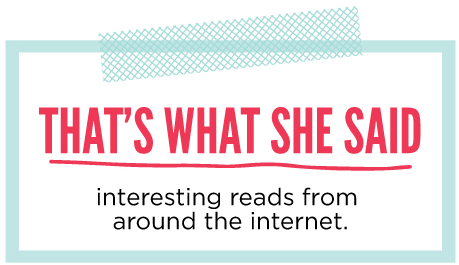National Adoption Month And Awareness: Flip The Script | Light Of Day Stories
Let’s listen to the voices that we can truly learn from: adopted adults. Let’s move the microphone, held in the past and present by adoption agencies and adoptive parents, and hand it to them. Take a look today on Twitter for #FliptheScript. Listen to the voices of adoptees who love their adoptive families deeply, and who have struggled nonetheless. Listen to those who had horrible, fraudulent experiences, and who have survived.
Adoption, Once And Always | Kelley Nikondeha for Red Letter Christians
I was adopted on April 28, 1969 and have the court papers to prove it. My adoption happened. But I also testify to the truth that my adoption happens. I am continually shaped by the graces of adopted living, constantly molded by hospitality, generosity, acceptance and an undeniable redemptive energy. Adoption is both a past event and a present tense reality for the adopted tribe.
It’s not easy to be a black kid with a white mom because people ask questions that I usually don’t want to answer but it matters about the way they say it. If they ask in a mean voice I will not answer and if they say it in a way that it’s like a real question and not just to be mean I will answer. I actually like having a white mom but I wouldn’t like it as much if I didn’t know anyone who was black because black people make my life more special because they are the same race and that helps because they understand racism and it feels good to see people who look like me.
“95% of all orphans are over the age of 5.” #FliptheScript #NationalAdoptionMonth http://t.co/QILSVmARM3
— Mila (@yoonsblur) November 4, 2014
Finding A Way Home | Gazillion Voices
For many adoptees, tracing the early years of our lives can be very hard and sometimes even impossible. My trip to Ethiopia this summer made me realize how privileged I am to have returned to where I was born and lived until I was six years old, and to have embraced a family that I once thought was lost forever. Going back is more than about visiting your birthplace like a tourist. It’s about completing your identity and salvaging the very things adoption has stripped you of—the very core of what we believed made us who we are.
Lost Daughters: Are Adoptive Parents Modeling Enough Adoption Language For Their Children?
Anyway, my point is that I had zero modeling from my parents about how to talk about my adoption, my birth family, my history, my heritage. So, what did I do? I just said nothing. When my adoption came up among my peers I froze. With every question or comment that I was not prepared to answer, a piece of me died. In college I erased the adoption from my life entirely. I didn’t even tell my husband I was adopted for a long time. How could I? I was ill-equipped for the topic and I was emotionally aware enough to know that the very mention of it chipped away at my soul. It was no way to live. Living a lie was awful.
No matter the circumstances that create the loss, a child available for adoption means s/he lost so much already. #flipthescript #NAM2014
— eunmi220 (@eunmi220) November 7, 2014
Mothermade: How Words Like “Lucky” And “Grateful” Hurt Me.
I am raw and aching. I know I should feel fortunate, lucky and grateful that I had this experience in Korea. But those words just boil me down to generalities and adoption stereotypes. It is time to change the language and stop using words that make me feel diminutive and my search trivial.
“Only in #adoption are you expected to be grateful for the loss of your parents and your family.” ~adoptee Maichen #flipthescript
— Renee Davis (@MizPotatohead) November 7, 2014
I’m not giving up on the struggle, and I am happy that I now know my Ethiopian family. They are happy that I grew up safe and healthy, with a good education. Still, I’ve seen the heartache that adoption has caused each of us, in different ways. These days, I ask myself often what I can focus on. What can I do to fix a broken system, which had failed my first family and many other Ethiopian families like mine? A system that means mothers must lose their children perhaps forever, that sends children to an orphanage, simply because their parents are too poor to keep them. I decided to open my eyes to my pain and that of first mothers and fathers. I’m not weeping anymore; I’m working.
A father kisses his child, her face hidden in a blanket. A mother holds her hooded baby as their shadows are cast upon the last door they will pass through together. Another collapses to the ground, reaching out to touch her son for the last time. They are the final moments of lives torn apart, often by poverty or an inability to cope with disease or disability.
Adoptees in the Wild: SeasonOne Trailer from Red Shiba Media on Vimeo.

